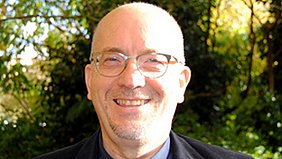To me, the last mentioned option is not a good one and it stands in direct opposition to what I think is the essence of Jewish–Christian dialogue. Dialogue is appreciating the distinctiveness of the two traditions. It is to learn from each other, to share with one another, but not to create a synthesis of the two.
Both Chanukkah and Christmas are celebrations of light. The Nobel Prize in Physics this year goes to three scientists who, in different ways, have made discoveries regarding the black holes in the cosmos. Two of them, Reinhard Genzel and Andrea Ghez, receive the prize with the motivation “for the discovery of a supermassive compact object at the centre of our galaxy.” What this means is, among other things, that the black hole in the centre of the Milky Way has a coordinating function; it is the centre and the galaxy revolves around this hole.
The black hole is the birthplace of the stars and therefore also of our sun. So what does this say about how we think about the relation between light and darkness? In Genesis 1 God is said to create light on the first day of creation, even though stars are created on the fourth. The Jewish day begins with night. In Swedish there is a theatre play called “The Night is Mother of the Day.” No doubt, light is stronger than darkness, but it is also impossible to think of light and darkness as separated; you cannot think of the one without the other.
This could be a difficulty for a Christian theologian citing First Epistle of John 1:5 “that God is light and in him is no darkness at all.” But must not both light and darkness come from God if God is creator of all? Maybe Psalm 139:11-12 gives a hint: “Surely the darkness will hide me and the light become night around me. Even the darkness will not be dark to you; the night will shine like the day, for darkness is as light to you.”
Darkness is as light! To me this sounds like an interpretation of a black hole as the birthplace of light. I don’t want to make any physical speculation here but I see a spiritual and humane challenge in the fact that much of the light in our lives comes out of darkness. I think this is something we should share with one another, the stories of light and darkness. Chanukkah and Christmas are great times for this! Of course these holidays this year have a darker tone than usual. We will not be able to meet as usual. But still, there will be possibilities to share stories and, not least, to light candles and be both joyful and thankful for all the light in our lives and in our shared history!
Happy Chanukkah and Merry Christmas from the ICCJ Executive Board, ICCJ’s General Secretary, and the staff in the Martin Buber House in Heppenheim!

